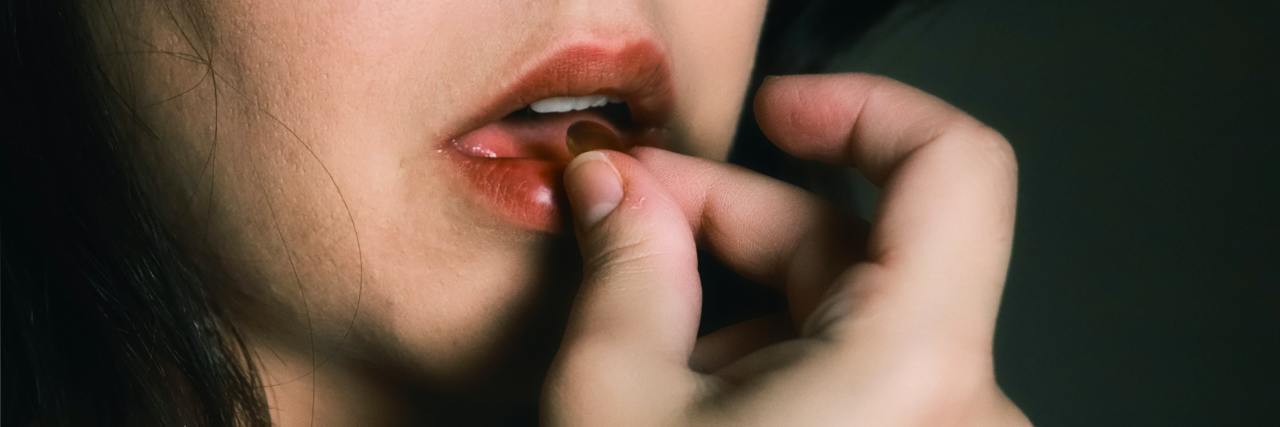My Psychiatric Medications Aren’t a Choice, They’re Life and Death
Editor's Note
Please see a doctor before starting or stopping a medication.
Where I live, pharmacists are required to do periodic “check-ins” with patients regarding the medications they are taking to ensure that the medications are being taken properly. My pharmacists knows me and knows that I am very careful about my medications. So, for my most recent check-in when I picked up my monthly supply of medications, he tried to makes things fun and treated it like a pop quiz. He pulled a pill bottle out of the basket and told me the name of the drug. Then I would tell him why I take it, when I take it and the dosage.
• What is Bipolar disorder?
As we went through each medication, he stacked the pill bottles on top of one another. It was like a strange game of Jenga. We both laughed at the tower of pills, 13 bottles high. Then another customer looked at me and asked, “Are those all for you?” I nodded and said they were. “Wow, that’s a lot,” he replied, clearly taken aback. He asked me if I really needed to take so many. He even went so far as to ask the pharmacist if it was safe for me to be taking all those medications. Inside I was pretty irritated, but I remained calm and polite until I could leave the pharmacy and let a string of expletives fly in the safety of my car.
Sadly, this isn’t my first experience with “pill-shaming.” I have had many people tell me that they just prefer a more “natural” approach. And I can’t count the number of times someone has told me, “I don’t even take Tylenol for headaches,” like it is a badge of honor. Here’s the thing – I was that person, too. I couldn’t swallow pills until I was in my 20s. I had horrible period cramps in high school, but didn’t take ibuprofen because I couldn’t get the pills down. The first time I ever took antibiotics was when I had my wisdom teeth removed when I was 24. Being in that position was a privilege. I know that now. Having a headache that bothers you and is uncomfortable, but having the option of whether or not you want to take something to help with the pain, is a privilege. I did not have a choice of taking medications or not when I started to experience symptoms of bipolar disorder. I did not have a choice.
People often look at mental illness as something that can be managed by talking to someone and making better life choices. And for some, that is true. But I will not mince words here – the choice to take medications was life and death for me. There are no lifestyle changes that will pull a person out of the paranoia, delusions and risky behavior that accompanies a manic episode. There is no amount of talking that will silence the constant voices telling you to kill yourself when you are in a major depressive episode. Please don’t question the powerful medications I was given to keep me alive. These were emergency situations and emergency measures were taken.
Today, the medications I take keep me from getting into those emergency situations again. But they still aren’t the “easy way out.” Lifestyles choices, counseling and self-care are also incredibly important in maintaining my mental health. But they will not entirely take away my need to take medications. And, I still don’t have the privilege of not taking these medications. With my history and diagnosis, I will likely be taking medications for the rest of my life. It’s not a choice between taking a natural approach or pumping my body full of chemicals. Those chemicals keep my moods manageable — I can work, volunteer and go to school.
Let me be clear: I am not “proud” of the number of medications I am on. I have had frequent discussions with my doctor about reducing dosages to find the lowest effective dose, or even coming off some of them. These medications come with side-effects, some permanent. And I don’t enjoy taking pills. But these are discussions that happen between my doctor and me. Frankly, if you are not the one prescribing my medications or filling those prescriptions, it is absolutely none of your business what drugs I take or how many I take. Please respect that for some with mental illness, medication is the only life-saving measure there is, and that medication is a necessary life-sustaining treatment.
Photo by Elsa Olofsson on Unsplash

